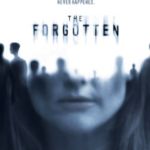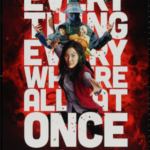Avengers: Infinity War (2018)
“Still reading comic books at your age?” That’s how a U.S. Army sergeant in South Vietnam once greeted an off-duty Pfc. he found devouring a comic book. Except that isn’t a real-life quote – it’s a line, a fun, self-deprecating one, from a comic book: The ’Nam, a Marvel product that ran from 1986 to 1993.
Actually, a lot of people today, including grownups, could answer the sarge in the affirmative: “Yep, still am reading comic books.” That’s because in addition to offering a certain level of entertainment, some comic book storylines can illuminate popular culture themes and reflect serious issues. That’s true with some comics-based films, too – for example, some from the Marvel Cinematic Universe super-hero film franchise, to which Avengers: Infinity War belongs.
Of course, comic books, and comic-book-based movies, can and do have flaws. Avengers: Infinity War is no exception. Its worst fault will be a disqualifier for more than a few people: at 1:20:30, the character Star Lord/Peter Quill (Chris Pratt) viciously takes the name of Jesus in vain. This line is entirely gratuitous, and Pratt delivers it in a sneering and malevolent tone. It will sting any Christian who hears it, and it should offend everyone who believes in civility and tolerance.
So to review this movie is less an endorsement than an academic exercise intended to analyze the film’s good features – which it does have.
The story begins in deep space, where mega-villain Thanos (Josh Brolin) is busy at his usual pursuits: killing, torturing, robbing, and destroying. He is all about death, as his name suggests, deriving as it does from Thanatos, the ancient Greek “god” of death. Thanos is on a quest, a ruthless and murderous one, to complete his collection of all six of the universe’s Infinity Stones.

What are these stones? We learn from “master of the mystic arts” Wong (Benedict Wong) that although “At the dawn of the universe there was nothing,” suddenly, “Boom! Big Bang sent six elemental crystals hurtling across the virgin universe.” He explains, “These Infinity Stones each control an essential aspect of existence: space; reality; power; soul; mind; and time.”

Possessing all the Infinity Stones together will give Thanos unlimited power over all of Creation – and having a one-track mind, he views that power as the ability to inflict death throughout the universe. Not the death of everyone, though; magnanimously – in his own warped mind – he wants to kill only half of everyone. You see, Thanos is a population controller. He argues, “…it’s a simple calculus. This universe is finite, its resources finite. If life is left unchecked, life will cease to exist. It needs correcting.”
Thanos plans to create “balance” through universe-wide mass murder, and he calls that “fair” because his killings will be “random” and “dispassionate” and will eliminate poor and rich people alike. His rationale is that there supposedly are “too many mouths” and “not enough to go around.”
https://youtu.be/cM-DoO84Sf4
We’ve heard that before, haven’t we? Back in 1798, Thomas Malthus thought population growth would always outstrip food production, until mass death via war, disaster, or famine balanced things out. And back in 1970, Paul Ehrlich echoed Malthus with ludicrous, spectacularly alarmist predictions of resources running out, mass starvation, and entire nations ceasing to exist.
History has proved them wrong. The world’s population in the last half-century and more has grown side by side with scientific advances, resource development, and reductions in poverty so extensive that today, according to the World Data Lab, more than half of the world’s people live middle-class lives.
Tell that to the screenwriters, though. They have Thanos crow that in a tune-up for his planned upcoming universal mass murder, his wiping out half of a planet’s people has eliminated poverty there. And Gamora (Zoe Saldana), his unwillingly adopted daughter – he killed her mother – agrees with his assumption that fewer people equals prosperity; she says it’s so but only “Because you murdered half the planet!” Thanos smugly replies, “A small price to pay for salvation.”

But that’s enough about Thanos. Lots of valiant, loyal, and self-sacrificing superheroes are doing their utmost to stop him. Marvel stalwarts the Avengers and the Guardians of the Galaxy link up to fight Thanos and try to save the universe, along with a couple of pagan “gods” and the advanced African kingdom of Wakanda (as seen in the also-2018, also-Marvel movie Black Panther). Happy warriors, they all wisecrack their way through multiple grim situations and desperate battles with Thanos and his forces. Their superpowers include prowess in hand-to-hand combat and the ability to defy physical laws (gravity, etc.) and to survive incredible trauma, but also elements that could entice and ensnare unwary viewers, such as having “magic,” telekinetic, and psychic abilities.
Not everyone will draw the lesson from this film that no tyrant or anyone else has the authority to impose population control anywhere. Who does Thanos think he is, wanting to determine the fate of trillions? We can ask the same of everyone, megalomaniacs all, who decide to “reduce population” via coerced abortions, sterilizations and contraceptives.
Aside from the blasphemy cited above, the film’s only reference to God is its last line, when a traumatized and exhausted Captain America (Chris Evans) says, “Oh, God” in a tone that can be interpreted as prayer. SPOILER ALERT: Not every heroic character survives, but evil Thanos and his evil deeds do. Also, an Avengers sequel will appear in April 2019.
The star-studded cast includes those named above, plus: Robert Downey Jr. (Iron Man), Chris Hemsworth (Thor), Mark Ruffalo (Hulk), Chris Evans (Captain America), Scarlett Johansson (Black Widow), Benedict Cumberbatch (Dr. Stephen Strange), Tom Holland (Spider-Man), Paul Bettany (Vision), Don Cheadle (T’Challa), Elizabeth Olsen (Scarlet Witch), Pom Klementieff (Mantis), Karen Gillan (Nebula), Dave Bautista (Drax the Destroyer), Peter Dinklage (Eitri) and many more.

This movie’s MPAA rating is “PG-13 for intense sequences of sci-fi violence and action throughout, language and some crude references.” Parents, beware: a mass murder scene, torture, gruesome battles, hideous creatures, murders, including one by mutilation, and deaths in which characters dissolve into ashes. The visual effects, motion capture and animation are outstanding. Kevin Feige produced, and Anthony and Joe Russo directed. Christopher Markus and Stephen McFeely wrote the screenplay, based on Stan Lee (may he rest in peace) and Jack Kirby’s The Avengers. Alan Silvestri was the composer. Trent Opaloch was the cinematographer and Jeffrey Ford and Matthew Schmidt the film editors.
— Dan Engler













